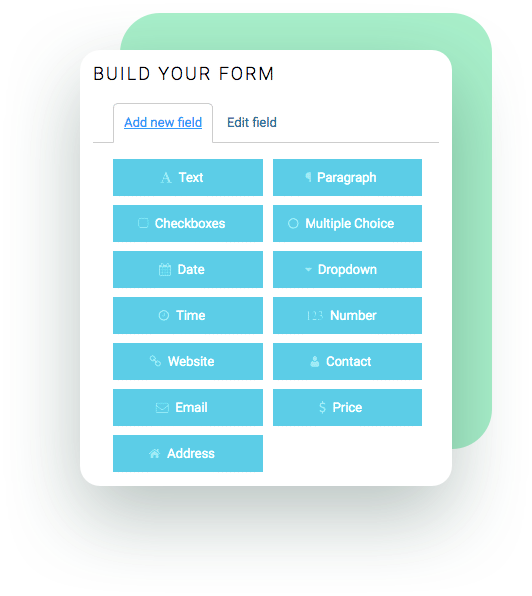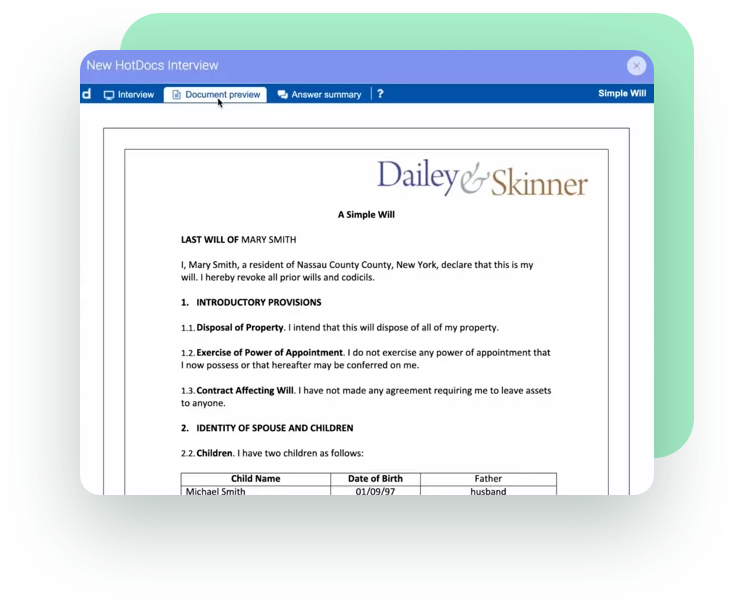Automation brings transformative benefits to law firms of all sizes and specialties, allowing attorneys to focus on strategy rather than repetitive tasks
Drafting pleadings, motions, and discovery documents is a fundamental yet time-intensive part of legal practice, especially in high-stakes areas like litigation, family law, criminal defense, and employment law. Traditional manual methods can often leave attorneys overwhelmed, particularly when managing high caseloads. Automated document creation tools offer a way to simplify these processes, ensuring documents are accurate, consistent, and tailored to jurisdictional standards.
Benefits of Automated Document Creation for All Firms
Automation brings transformative benefits to law firms of all sizes and specialties, allowing attorneys to focus on strategy rather than repetitive tasks.
- Time Savings and Efficiency: Automation significantly reduces the time spent drafting and editing documents. Attorneys can use templates to generate pre-formatted case briefs or motions, freeing up time to focus on case strategy and client advocacy.
- Enhanced Accuracy and Consistency: Manual drafting often introduces errors. Automated creation ensures that documents meet professional standards by reducing errors and maintaining consistency, whether you’re preparing a single motion or a series of discovery requests.
- Scalability for High-Volume Practices: High-volume case areas, like litigation or employment law, demand rapid yet reliable document creation. Automated tools help attorneys manage large workloads without compromising on quality.
- Transparency with Audit Trails: Built-in audit trails track document access and edits, ensuring accountability and compliance in fields like employment law or criminal defense.

Litigation: Managing High-Volume Pleadings, Motions, and Discovery Documents
Litigation often requires attorneys to file a high volume of motions and pleadings while adhering to strict deadlines. Automation helps litigation teams streamline these efforts:
- Frequent Motion Filings: Templates for motions, such as summary judgment or dismissal, ensure consistent formatting and compliant language for every filing.
- Discovery Needs: Automating discovery documents, including requests and responses, saves hours by pre-populating fields and using pre-approved language.
- Customizable Pleadings: Litigation attorneys can quickly adapt CARET Legal’s templates to meet jurisdictional standards while tailoring them to the specifics of each case.
Whether handling high-volume litigation or time-sensitive family law cases, automation tools enable attorneys to streamline workflows, reduce errors, and deliver exceptional client service.
Family Law: Streamlined Document Creation for Sensitive and Time-Sensitive Cases
Family law cases often involve sensitive issues and tight deadlines, making automation essential:
- Automated Pleadings in Custody and Divorce Cases: Pre-formatted templates help attorneys quickly prepare custody petitions or divorce filings while ensuring compliance with local court requirements.
- Motions for Modification or Enforcement: Automation simplifies creating motions to modify child support or enforce orders by pre-filling client information and including required statutory language.
- Discovery and Financial Affidavits: CARET Legal’s automated templates make it easier to manage discovery documents, especially in complex financial cases where consistency and accuracy are critical in financial affidavits and disclosure documents.
Criminal Defense: Efficiently Managing Time-Sensitive Filings
Motion Practice for Criminal Defense
Criminal defense attorneys frequently rely on motions to suppress evidence or dismiss charges, as these filings often determine the direction of a case. Automation tools ensure that these motions are prepared quickly and adhere to procedural requirements, enabling attorneys to respond promptly to time-sensitive issues.
Automating Pleadings for Consistent Defense Strategies
Maintaining consistency in defense strategies is crucial, especially when managing a high caseload. Automated pleading templates allow attorneys to draft consistent and standardized documents, ensuring that similar cases are handled with uniform language and formatting, minimizing errors.
Discovery Requests and Evidence Review
Discovery is a critical phase in criminal defense, often involving extensive requests for evidence. Automated discovery templates streamline the process, enabling attorneys to request, organize, and review evidence more efficiently. This reduces the time spent on repetitive tasks, ensuring that critical information is easily accessible when needed.

Employment Law: Handling Large Volumes of Document Filings in Litigation and Dispute Resolution
Employment law cases often involve substantial document handling and compliance requirements. Automation simplifies these processes:
- Pleadings for Employment Disputes: Automated templates ensure filings for wrongful termination or discrimination cases are accurate and structured to meet compliance requirements.
- Motions in Complex Employment Litigation: Automation supports high-volume filings like summary judgment or motions to compel, ensuring consistency and efficiency.
- Discovery Management for Employee Data: Automated discovery templates streamline the management of extensive employee data, facilitating efficient reviews and secure sharing.
Don’t Stay Stuck Creating Documents Manually
Automating document creation is a powerful way to enhance efficiency, accuracy, and compliance across diverse practice areas. Whether handling high-volume litigation or time-sensitive family law cases, automation tools enable attorneys to streamline workflows, reduce errors, and deliver exceptional client service. To explore how CARET Legal’s tools can transform your firm’s approach to document management, schedule a demo today.
